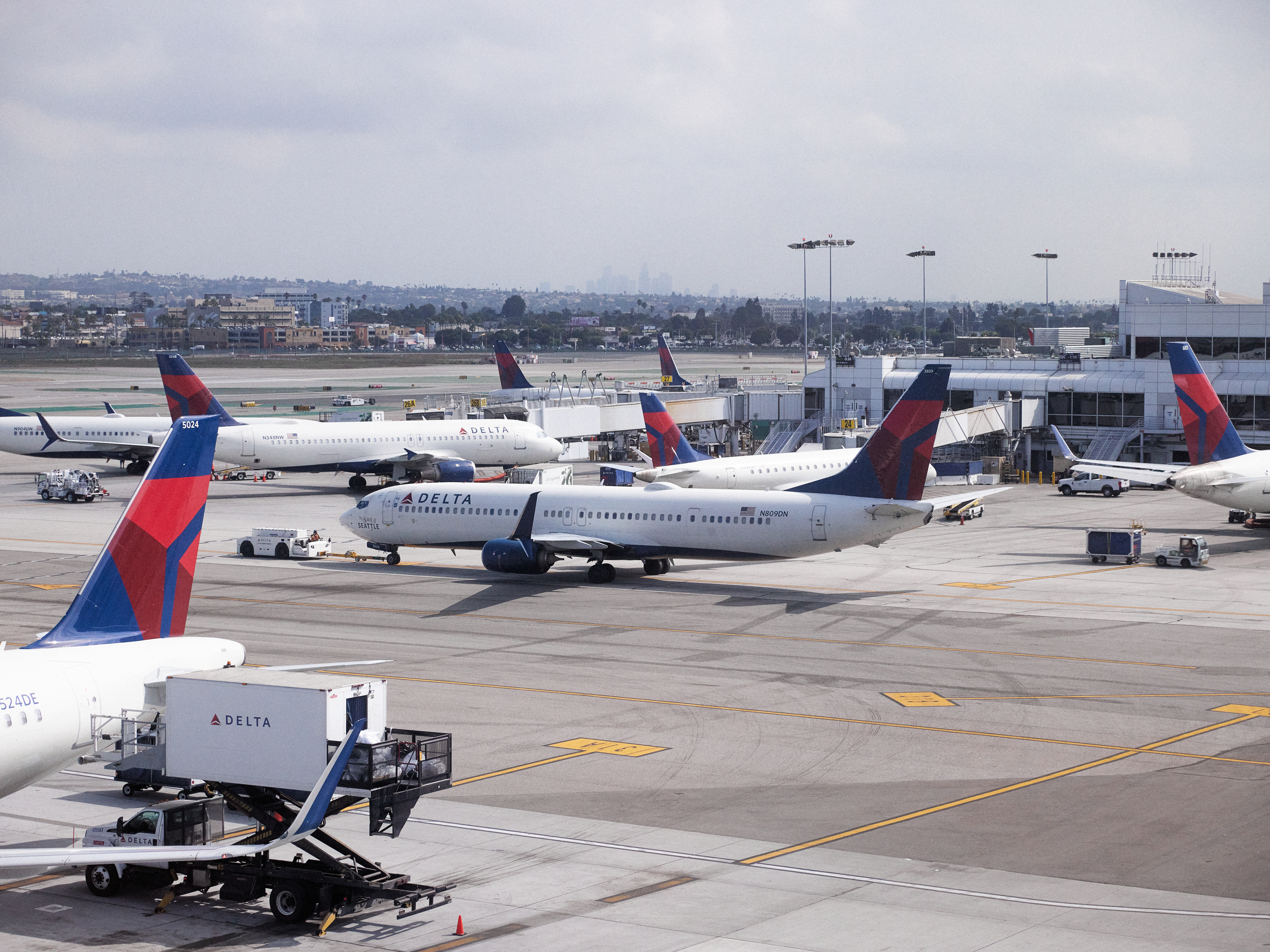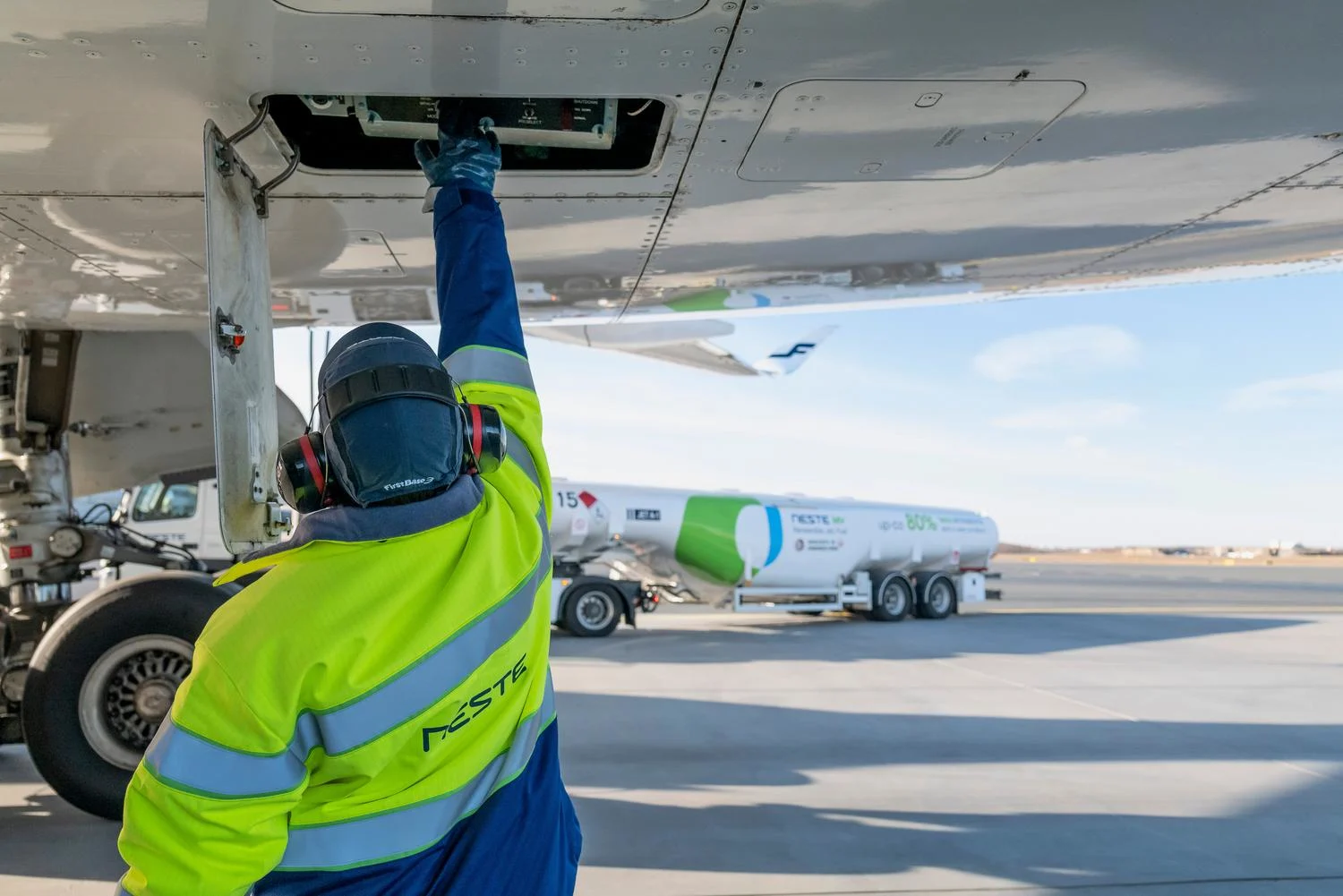
Products and innovation, Sustainable aviation
4 minute read
How Delta and Neste are working toward making flying more sustainable
The aviation sector has embarked on a journey to net-zero carbon emissions by 2050, but it won’t be easy for the hard-to-abate sector. That’s why Delta, one of the leading global airlines in the world, is taking action today.
In this article:
SAF is an existing solution that reduces GHG emissions by up to 80% compared to using conventional jet fuel.
Delta Air Lines has committed to replacing 10% of traditional jet fuel with SAF by end of 2030.
Delta Air Lines formed a partnership with Neste to deliver SAF.
“With around 90% of the industry’s carbon emissions coming from jet fuel, focusing on the fuel we use and how we use it is essential to reaching net zero,” says Amelia DeLuca, Chief Sustainability Officer at Delta Air Lines. “Our goal is to replace 10% of the 4 billion gallons of fuel we use each year with sustainable aviation fuel by the end of 2030. We’re also working aggressively to reduce the overall amount of fuel we use by at least 10 million gallons year over year through 2030.”
Sustainable aviation fuel (SAF) is a more sustainable alternative to conventional jet fuel that is made from renewable waste and residue raw materials such as used cooking oils and animal fat waste – not crude oil. It is a safe, drop-in solution, meaning it can be used with existing aircraft engines and fuel infrastructure, and is available today.
“Using SAF is the most important lever we have as an industry to move toward net zero. The beauty of SAF is that it can be used in existing fuel infrastructure and the airplanes of today, which will be used for decades to come while the revolutionary fleet of the future is developed,” says DeLuca. “But there isn’t enough SAF being produced today to power the world’s commercial airlines for a single day. That’s why we are proud to partner with producers like Neste to drive demand signals and encourage the policies needed to spur even more production.”
Debunking misconceptions and the power of education
While SAF is widely recognized as the single most important tool for the aviation industry to decarbonize, many people are unaware of what it is and how it can contribute to a more sustainable travel experience.
“Some consumers already know that SAF can be made from used cooking oil and some believe it smells even like french fries. While this may sound a bit silly, it is important to understand the wider importance of SAF. Not only is it made from renewable raw materials, it is going to allow this industry to move toward net zero. The industry needs to keep educating the consumers,” DeLuca continues.
Making the impossible possible through partnerships
Partnerships across the industry are not only required to educate the public, but to increase the availability of SAF at airports. Delta and Neste, the leading SAF producer, started their partnership in 2021, including a trial with Neste and Colonial Pipeline to test how to transport SAF through existing pipeline systems. In the trial, SAF was delivered from Texas to New York’s LaGuardia airport over nearly 1,500 miles and across 11 states through the Colonial and Buckeye pipeline systems.
“Neste is one of the leading producers of sustainable aviation fuel in the world. As we look to replace 10% of our jet fuel with SAF by the end of 2030, Neste has been and will continue to be part of the solution,” DeLuca adds.
Optimism leads the way forward
In the long run, decarbonizing aviation is a complex challenge which includes replacing the majority of jet fuel by SAF but the most important driver is optimism.
People need to know what SAF is, and to feel optimistic about it.
“While things can seem daunting, there is a path forward. We want customers to feel like they are having a more sustainable travel experience regardless of the airline they are flying with, so they continue to have faith in us as a sector. That’s why we have already significantly reduced the use of single-use plastics and we are well underway with the electrification of our ground support equipment in our Salt Lake City and Boston hubs. Sustainable aviation fuel plays a huge role in this. It can and will scale, and ultimately prove there is a path forward for the aviation industry.”
“For us at Delta, the important thing is to surround ourselves with partners who show us what is possible, and that is where Neste comes into play. We are flying with SAF today because of partners like Neste, and our partnership allows us to prove what many consider to be impossible, possible,” concludes DeLuca.

